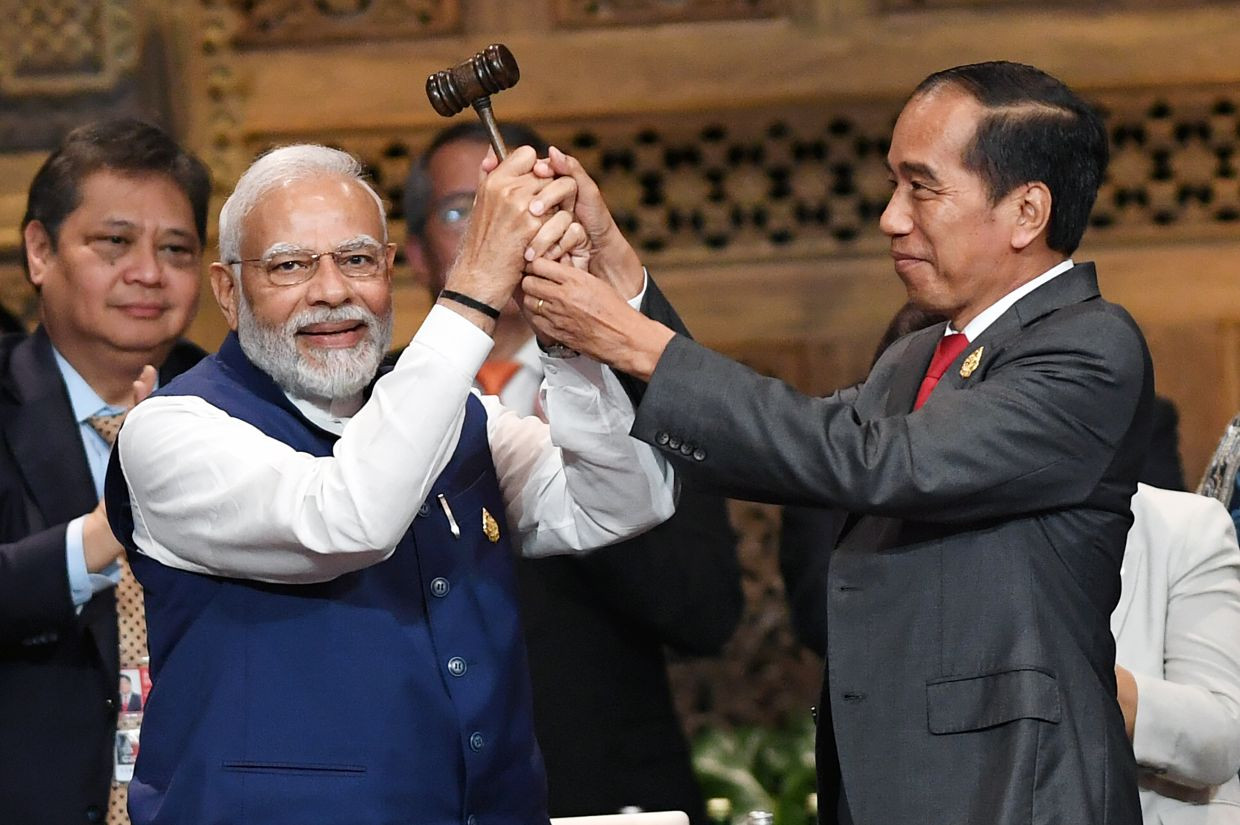Popular Reads
Top Results
Can't find what you're looking for?
View all search resultsPopular Reads
Top Results
Can't find what you're looking for?
View all search resultsMission accomplished
The successful conclusion to the G20 Bali Summit on Wednesday and the issuance of the Bali Leaders' Declaration are testament to the Indonesian brand of diplomacy in bringing parties together. Now, it must use its weight to drive the implementation of commitments achieved during its 2022 G20 presidency.
Change text size
Gift Premium Articles
to Anyone

Indonesia concluded its 2022 Group of 20 presidency with the G20 Bali Summit in Nusa Dua. The 17th G20 Heads of State and Government Summit managed to defy the negative expectations, especially considering the palpable tensions between G20 member countries stemming from their different views on how to best respond to the war in Ukraine.
Many had feared the emergence of an irreconcilable split among 20 of the world’s biggest economies, which would then threaten to upend any cooperation at the global economic forum at the expense of billions of people around the world who relied on a unified G20 leadership.
Pulling off a successful gathering of so many world leaders, corporate kingpins and industry and finance chiefs on a small island full of tourists is telling of the enormous amount of work the host country put in.
The Indonesian government deserves hearty congratulations for an overall job done well. That the summit also constitutes a diplomatic win during a time of war is a clear testament to the achievements multiple stakeholders can make if they all pull together in one direction.
While some may suggest calling into question several choices that local organizers made, it is hard to fault them for delivering what observers are lauding as “a success on all counts”.
The fruits of the Indonesian presidency’s labor can be summed up by the key deliverable: the sprawling, 1,186-page G20 Bali Leaders’ Declaration, several communiqués and chair summaries, as well as pages of notes and annexes detailing the work produced throughout the year.
Being able to appease all parties on the highly sensitive subject topic of the Ukraine war It is no small feat. President Joko “Jokowi” Widodo even acknowledged that one specific paragraph on the war in the draft declaration had kept negotiators up all night on the first day of the two-day summit, whereas the rest of the document’s content and wording were in good order.
For the keen observer, it is easy to see how this wordy passage incorporates the inputs of all G20 members. One could pick apart the contradictions in this paragraph, but if their goal was consensus, the leaders have managed to capture lightning in a bottle.
Still, it is hard to overstate the fact that there is more work to do ahead, and that the G20 as an informal, albeit powerful, forum can only do so much to influence the outcome in Ukraine, let alone bring an end to a war being fought more than 10,000 kilometers from Nusa Dua.
The immediate challenge is implementation. The G20 is an annual forum that pushes out page after page of commitments and promises as a matter of principle, so ensuring that any of this is translated into action is something Indonesia must work on as part of the new G20 Troika.
And with India taking the helm in 2023, followed by Brazil and South Africa to end the first cycle of the rotating presidency, there will be momentum to ensure that this most prestigious of clubs will continue to champion the interests of developing countries.










